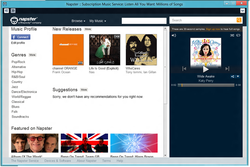Universal Music will propose a settlement about download royalties

Universal Music is set to follow Sony Music and Warner Music in proposing a settlement to the widespread and long-running dispute – especially in the US – about what royalties artists should be paid on download income. As much previously reported, numerous heritage artists have cried foul over the years about the way many record companies – including all the majors – have shared download money with their artists.
Record contracts conventionally distinguish between ‘sales’ and ‘licensing’ income, giving artists a much bigger share of the latter than the former (customarily around 15% of sales and 50% of licensing revenue).
As record sales moved from CDs to downloads, labels treated digital income as ‘sales’. But artists argued that in the download space the labels ‘licensed’ Apple to allow users to download copies of their recordings, and therefore download revenue should be classified as licensing income with the higher royalty split paid to talent.
Sony Music was the first major to be hit with litigation on this issue, though that case initially ran aground amidst technicalities. Universal were then sued by early Eminem collaborators FBT Productions, who ultimately won the case, sparking a plethora of lawsuits, some class actions, against all three majors. Though Universal maintained that the FBT case was specific to the producers’ contract and didn’t set a general precedent.
Both Sony Music and Warner Music proposed settlements to kill the class action cases, which, if they went to court and the artists won, would enable all heritage acts with pre-iTunes contracts to claim higher royalties. In the main the settlements propose paying heritage artists a few percent more on downloads than CDs (quite a way off a 50/50 split though), usually with some provision for back-pay on downloads sold to date, which given the download market has now peaked is possibly more important than future income.
Class action settlements need court approval and that process is usually long drawn out. Meanwhile, behind the scenes, we know some bigger heritage artists are agreeing their own terms on download income with the labels, usually cloaked in those always fun non-disclosure agreements, so that deals with the big guys can’t influence what everyone else asks for.
Anyway, Universal, which has so far resisted a public settlement, instead trying to have the cases against it dismissed, is now set to attempt a settlement, with the judge overseeing the case instructing both sides in the dispute to submit a motion for approval by 10 Apr, according to Billboard. Universal’s motions to dismiss the original lawsuits are also being terminated now that settlement talks are underway.
Specifics of the new settlement are not known, though will likely follow the lead set by Sony and Warner. It is thought the deal will cover all and any recordings acquired by Universal’s acquisition of EMI in the midst of all this back in 2012.
Of course, most of the settlements to date have focused specifically on downloads, which could result in a whole new round of disputes over streaming income, where the argument for the ‘license’ classification is even stronger, and where artists may push for a higher cut of income than they were able to win on downloads. So that’s fun.
Source: CMU


